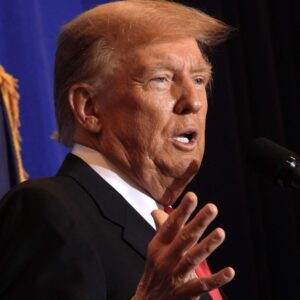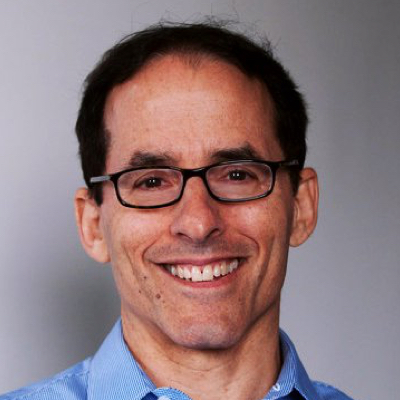For an alternate viewpoint, see “Point: Would Reagan Recognize Today’s Republican Party? Absolutely.”
What is the Republican Party today? Any answer has to start with Donald Trump.
He has a grip on the party that is perhaps unprecedented in the modern era, leading some analysts to see it as a cult of personality. Many Republican leaders and elected officials who do not like him have nonetheless been unwilling to challenge him, even on his assertion that he actually won the 2020 election — which they must know to be ridiculous.
This servile obedience was partly a result of Trump helping them get what they wanted most: tax cuts that primarily benefited the rich and more control over the judicial system — including the Supreme Court. The latter was a culmination of half a century of Republican organizing and dark money, which soon brought them another “prize,” an end to the federal constitutional right to abortion in the United States.
Trump campaigned and governed largely by distraction — another unprecedented phenomenon. He accumulated 88 million followers on Twitter. When some Republican mega-donors abandoned him in 2020, he was able to expand a small-donor and social media base that helped make his second bid for the presidency extremely close in the swing states that determined the outcome.
And he could possibly win again in November.
The subservience of Republican leadership to Trump constructed and partially revealed a political party with a severe scarcity of courage and conviction. A party where leaders became increasingly shameless in prioritizing power over all other political goals. A party of chaos when they thought their Democratic opponents would get blamed for a debt ceiling impasse in the Congress last year. A party that plays upon fear and racism — especially about immigration — where “American parties are increasingly seen as distinct racial and ethnic camps,” as political scientists Kirill Zhirkov and Nicolas A. Valentino described it.
Republican presidential candidate Nikki Haley, when asked in January “what was the cause of the Civil War,” couldn’t bring herself to mention slavery.
Trump invents “a new category of crime. It’s called migrant crime. And it’s going to be worse than any other form of crime,” he said.
So what if undocumented (and legal) immigrants actually commit much less crime than citizens born here? Welcome to the post-truth, Trumpian world.
But even if Republicans took governing more seriously, the political priorities most likely to emerge would be those they have carried for decades. A majority of House Republicans are members of the Republican Study Committee, which wants significant cuts to Social Security and Medicare, including raising the retirement age.
And then there’s climate. At the first Republican presidential debate last year, the candidates were asked, “Do you believe human behavior is causing climate change? Raise your hand if you do.” No hands went up.
In this pathetic situation, some Republicans have become nostalgic and wistful for Ronald Reagan, a kind of father figure who they see as a transformational president. He was that. But unfortunately it was a transformation that Americans — and much of the world too — are still paying for.
Reagan helped lead a transformation of economic policy that had enormous influence. He led off with a mass firing of 12,000 air traffic controllers who had gone on strike for better working conditions. This was the beginning of a drastic change in labor relations, and then law, which greatly increased the power of employers and weakened organized labor.
This ushered in a new era of income distribution for the United States. Real (inflation-adjusted) wages for a typical worker had basically grown with productivity from 1948 to 1979, more than doubling during this period; from 1979-2019, they hardly grew, just 13.7 percent (or 0.3 percent annually).
Then there were the Reagan tax cuts, which provided much bigger gains — not only in absolute size but relative to income — to high income groups, including the top 1 percent of the income distribution.
The Reagan administration also played a major role in changing the economic policies of developing countries, since Washington has a dominant role in the most powerful multilateral lending institutions such as the IMF and World Bank. The policies they promoted in the 1980s and 1990s failed much worse, and caused much more destruction and suffering, in the developing world than at home.
Not to mention the horrible wars in Central America in the 1980s that the Reagan administration was involved in — Guatemala, El Salvador and Nicaragua — which took tens of thousands of lives.
Republicans won’t find someone like Reagan to replace Trump. But if they did, they still wouldn’t be fit to govern.




